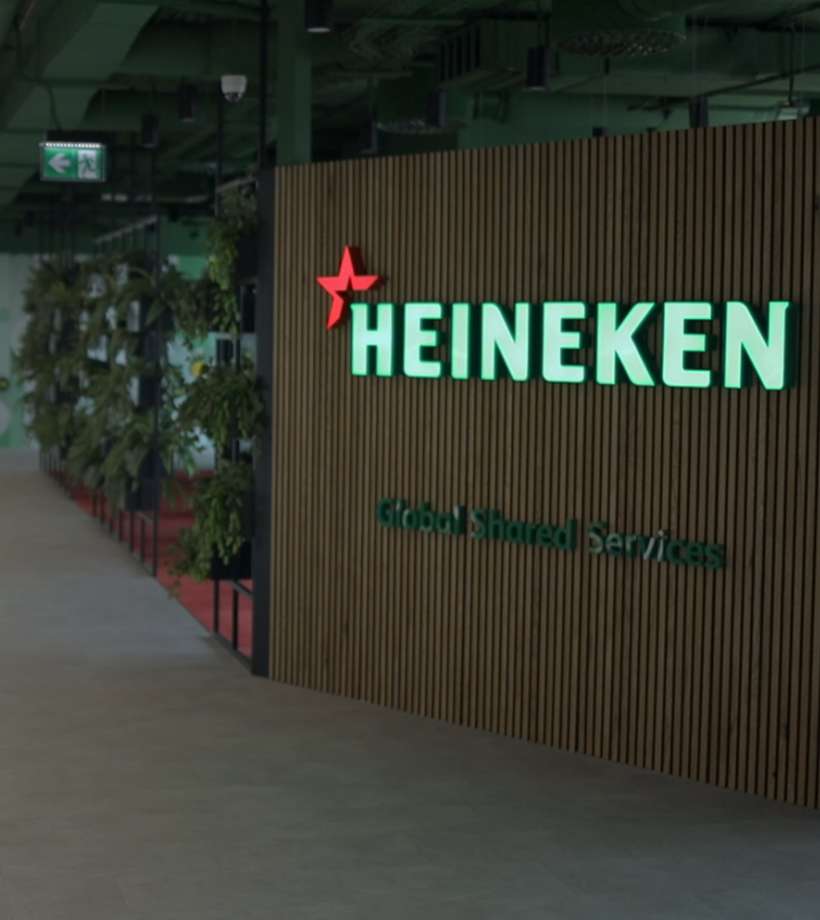-
Featured services
Harness innovation to deliver value
Ensure short-term stability as you design a roadmap for new use cases in your industry with emerging technologies.
Explore Connected Industries -
Services
View all services and productsLeverage our capabilities to accelerate your business transformation.
-
Services
Network as a Service
Popular Products
-
Private 5G
Our turnkey private 5G network enables custom-built solutions that are designed around unique use cases and strategies, and deployed, run and optimized through a full network-as-a-service model.
-
Managed Campus Networks
Our Managed Campus Networks services transform campus networks, corporate area networks and interconnected local area networks, and connect smart places and industries.
-
-
Services
Cloud Services
Popular Products
-
Cloud Migration and Transformation Services
Access the people, processes and technologies you need to deliver cloud migration projects that improve your return on investments.
-
Site Reliability Engineering Services
Get the most from your cloud investments when you harness our Site Reliability Engineering Services to support app development and lifecycle management.
-
-
Services
Edge as a Service
Client stories
-
Penske Entertainment and the NTT INDYCAR SERIES
Together with Penske Entertainment, we’re delivering digital innovations for their businesses – including INDYCAR, the sanctioning body of the NTT INDYCAR SERIES – and venues such as the iconic Indianapolis Motor Speedway, home to the Indianapolis 500.
-
Using private wireless networks to power IoT environments with Schneider Electric
Our combined capabilities enable a secure, end-to-end digital on-premises platform that supports different industries with the benefits of private 5G.
-
-
Services
Technology Solutions
Client stories
-
Services
Global Data Centers
-
Services
Digital Collaboration and CX

IDC MarketScape: Worldwide Datacenter Services 2023 Vendor Assessment
We provide a new kind of intelligent infrastructure to deliver better outcomes through technology.
Get the IDC MarketScape -
-
-
Insights
Recent Insights
-
The Future of Networking in 2025 and Beyond
-
Using the cloud to cut costs needs the right approach
When organizations focus on transformation, a move to the cloud can deliver cost savings – but they often need expert advice to help them along their journey
-
Make zero trust security work for your organization
Make zero trust security work for your organization across hybrid work environments.
-
-

Copilot for Microsoft 365
Everyone can work smarter with a powerful AI tool for everyday work.
Explore Copilot today -
-
Global Employee Experience Trends Report
Excel in EX with research based on interviews with over 1,400 decision-makers across the globe.
Get the EX report -
Discover how we accelerate your business transformation
-
About us
CLIENT STORIES
-
Liantis
Over time, Liantis – an established HR company in Belgium – had built up data islands and isolated solutions as part of their legacy system.
-
Randstad
We ensured that Randstad’s migration to Genesys Cloud CX had no impact on availability, ensuring an exceptional user experience for clients and talent.
-
-
CLIENT STORIES
-
Liantis
Over time, Liantis – an established HR company in Belgium – had built up data islands and isolated solutions as part of their legacy system.
-
Randstad
We ensured that Randstad’s migration to Genesys Cloud CX had no impact on availability, ensuring an exceptional user experience for clients and talent.
-
-
CLIENT STORIES
-
Liantis
Over time, Liantis – an established HR company in Belgium – had built up data islands and isolated solutions as part of their legacy system.
-
Randstad
We ensured that Randstad’s migration to Genesys Cloud CX had no impact on availability, ensuring an exceptional user experience for clients and talent.
-

NTT DATA and HEINEKEN
HEINEKEN revolutionizes employee experience and collaboration with a hybrid workplace model.
Read the HEINEKEN story -
- Careers
As part of its digital transformation strategy, Henkel decided to modernize its communications environment. After Skype for Business replaced the company’s existing telephone system, the next step was to switch to Microsoft Teams. The solution combines chat, files, audio/video meetings and calls in a common user experience across devices to meet the needs of a global organization with multiple business divisions and diverse locations. Thanks to carrier and telephony services from NTT DATA, Henkel now benefits from a state-of-the-art network architecture with global coverage and a flexible pricing structure.
Client profile
Henkel is an international company that develops leading innovations, brands and technologies in three business areas: Adhesive Technologies, Beauty Care and Laundry & Home Care. Henkel employs more than 50,000 workers worldwide – a motivated and very diverse team united by a strong corporate culture and the shared objective of achieving sustainable value for customers, people and society.
Business needs
Modern working environments need modern communication solutions
Traditional telephone systems quickly reach their limits in the digital working world. Employees sit in the office, work from home, travel or meet with customers. If the desk phone, the smartphone and the Teams client ring independentely, employees have to keep an eye on different voice channels, which is neither efficient nor productive. Seamless communication is essential.
This was a challenge that Henkel also faced. As part of its strategy, the Group promotes digitalization in all areas and is a pioneer in adopting new technologies. A few years ago, Henkel converted its outdated telephony environment to Skype for Business. When the contract expired, they looked for a modern communications solution that met the needs of a global organization. As part of the realignment, the existing infrastructure needed to be consolidated and centralized. Previously, a dedicated Session Border Controller (SBC) was required at each location. This is used in Voice-over-IP networks to control the signaling and media streams involved in setting up, executing, and terminating phone calls. Another goal was to consolidate the numerous telecoms providers into a single provider to simplify the management of global communication and to achieve cost benefits. Due to the complexity of implementing new telephony solutions – from modernizing networks, complying with regulations to integrating legacy systems – an IT partner was needed who had not only global coverage, but also the necessary experience.
“The traditional desk model is becoming obsolete – employees today must be able to work from anywhere. Large companies, with locations worldwide, rely on maximum flexibility for communication,” says Dirk Lehmann, Head of Audio/Video Services at Henkel, describing their initial situation.
"Worldwide coverage, a transparent cost structure and customized services made the difference for us in taking the next step in modernizing our communication system with NTT DATA. As our long-standing IT partner, NTT DATA also knows our infrastructure. This greatly simplified the migration."
Solution
NTT DATA cloud telephony with Microsoft Teams is the answer to all challenges
To achieve the necessary flexibility, Henkel decided on cloud telephony via Microsoft Teams. This allows users of Microsoft Teams to establish a Public Switched Telephone Network (PSTN) connection so that they can make and receive internal and external calls from any device running Teams. The necessary cloud infrastructure is provided by the service provider. Compared to other structures, this solution offers significant advantages, especially for large companies with numerous locations: greater flexibility, broad geographic coverage, lower rates and customized support.
As a long-standing IT partner of Henkel, who has part of Henkel’s modernization activities, NTT DATA chosen to deliver this service. We implemented Microsoft Teams telephony for Henkel in more than 30 countries via our global backbone network. Telephony at all other locations and in countries that can’t be serviced by us from the cloud for regulatory reasons is connected using Session Border Controllers and Direct Routing.
Where Henkel used to have to negotiate rates with the respective telecoms provider in each country making cost optimization was difficult to implement.
Thanks to the economies of scale offered by our Tier-1 network, a suitable rate for the respective caller behavior can now be selected at optimum terms. Usage data is provided via a central dashboard, which can be used to assign the calling plans. Individual services to match the specific features of the existing infrastructure are an additional benefit. At Henkel, we implemented a hybrid approach to enable the integration of traditional systems, such as any fax solutions still required or emergency systems in the factories, into the cloud solution.
For the operation of key IT infrastructure, Henkel have adopted an outsourcing strategy, with the company’s in-house experts optimizing operations in close coordination with external partners. In the case of the telephony solution, Henkel now benefits from a 24x7 service, which would be very costly to accomplish with internal resources.
“With the service from NTT DATA, we have access to state-of-the-art network architecture with global coverage and a flexible price structure,” says Dirk Lehmann, Head of Audio/Video Services at Henkel. “Worldwide coverage, a transparent cost structure and customized services were the deciding factors for us in taking next step in modernizing our communications system with NTT DATA. As our long-standing IT partner, NTT DATA also knows our infrastructure. This greatly simplified the migration.”
"The traditional desk model is becoming obsolete – employees today must be able to work from anywhere. Large companies in particular with locations worldwide rely on maximum flexibility for communication. We have achieved this flexibility with the help of NTT DATA cloud telephony, using Microsoft Teams."
Outcomes
More flexibility at lower cost
By switching to Microsoft Teams, Henkel has simplified its communication across the organization. The company is now able to communicate seamlessly with customers, partners and colleagues around the world – anywhere and at any time. This has led to increased employee satisfaction and productivity. By outsourcing operations to NTT DATA, the Group also benefits from a rapid return on investment and has more time for business-related innovations.
More efficient communication
Employees can make and receive calls with any Teams-compatible device, regardless of where they are. Functions, such as forwarding or recording calls increase efficiency.
Flexible scaling
Traditional systems are limited in terms of the number of external telephone lines or even the number of internal terminal devices. Cloud telephony offers virtually limitless scalability. In the event of an expansion or relocation, the company can adapt quickly and scale flexibly. Thanks to the global connectivity solution, Henkel is no longer forced to use different solutions and tools from different providers.
Simple management
A standardized platform for global communication is much easier to manage. Call options can be controlled, users added, or settings changed via the central dashboard, greatly reducing complexity.
Lower cost
Instead of maintaining an oversized communication infrastructure for potential peak loads the cost of telephony via Teams is much lower. This allows them to look at leveraging Operator Connect in the future.
Operator Connect also enables economies of scale through a consolidated carrier and provides the team with full cost visibility at all times via the dashboard.
The first pilot of Operator Connect has already been successfully concluded.
Speak to an expert

